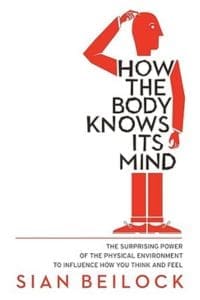
Book Review: Soccer Tough 1 and 2 with Dan Abrahams
A Sports Psychology Guide for Young Footballers
Introduction
In the competitive world of professional football, especially for younger players aged 18+ striving to break into the first team, the physical, technical and tactical demands are fierce. But one area often under-emphasised is the mental game. How you think, how you manage pressure and how you respond to mistakes. This is where Dan Abrahams’ Soccer Tough series becomes highly relevant. The first edition, Soccer Tough: Simple Football Psychology Techniques to Improve Your Game, demystifies essential mental skills. The second edition, Soccer Tough 2: Advanced Psychology Techniques for Footballers, expands into deeper themes of training, preparation, performance and progression.
In this review I’ll cover:
- What each book offers
- Strengths and limitations (especially through the lens of young pro footballers)
- Some key take-aways for players, coaches and parents
- How you can embed these insights into your routines.
What the Books Offer
Book 1: Soccer Tough
The first book is structured around practical, accessible mental-skills for football players of all levels including youth and reserve-team players. It emphasises focus, self-belief, confidence, imagery, self-talk and body language. For example, Abrahams writes: “Technique, speed and tactical execution are crucial… but it is mental toughness that marks out the very best players.”
One sample excerpt discusses how players can shift from thinking “I’ve messed up” to “how do I fix it now?” which is the switch from a limiting mindset to a growth mindset.
Importantly for young pros: the message is clear that mental skills are trainable, not mystical. Abrahams gives concrete exercises (scripts, visualisation, self-talk) rather than just theory. The accessible style makes it usable for players (and coaches/parents) without deep psychology talk and long words!
Book 2: Soccer Tough 2
The sequel builds on the fundamentals and introduces more specialised “controllers” (focus, intensity, emotion) as well as a clear four-stage structure: Practice, Prepare, Perform, Progress. The book states it is designed to help players “train better, prepare more thoroughly, perform with greater consistency and progress faster.”
The key new content includes:
- Developing a “no-limit attitude” towards your potential.
- Using “controllers” to manage focus, intensity and emotions in-game.
- Building an “improvement programme” rather than just reacting week to week.
- Emphasis on consistency (which is vital for young players seeking professional contracts). For example: “When a coach is under pressure… they do not want to put their fate into a player who is inconsistent.”
In short: Book 2 is more demanding, more structured, and addresses the bridge from agency (understanding mental skills) to applying them in the professional environment.
Strengths for Young Professional Footballers (Aged 18+)
- Trainable Mental Skills
Dan Abrahams emphasises that things like self-talk, imagery, focus and body language are not just “nice to have” but trainable skills. For a young player pushing for minutes on the pitch, this helps shift you from “I’m good enough physically” to “I’m mentally ready too.” Book 1 in particular highlights this.
- Relatable to Youth and Pro Pathway
While many sports psychology texts are academic or generic, these books are written with young players (youth/reserves) and coaches in mind. For example, in Book 1: “guided youth team players from slumps to first team contracts.” That’s very relevant to 18+ year-olds who are aiming to break through.
- Focus on Consistency and Progression
For young players the big challenge is not just that they can be good in a game, but can they be reliably good? Book 2’s focus on “practice, prepare, perform, progress” helps build a mindset of continual improvement rather than peaks and troughs. And going about your career in professional football in a reactive fashion.
- Useful for Coaches and Parents Too
While the player is the primary audience, the accessible style means coaches and parents can engage with it which helps align everyone around the athlete or playersdevelopment. For example, the youth-player advice piece by Abrahams emphasises how parents and coaches support the resilience process.
Considerations & Limitations
- Because the book is written for a broad audience, some sections may feel basic for players with deep mental-skills or sports psychology support already.
- The books provide tools and frameworks, but does not substitute for personalised, ongoing sports psychology consultations. As a young professional it’s easy to get comfortable and fall into poor mental habits so you will most definitely benefit from tailored one-to-one support with a qualified practitioner.
- Application is key: reading a chapter doesn’t automatically change performance. The biggest leaps come when you apply the scripts, controllers, imagery, self-talk consistently and reflectively. This is emphasised in Book 2 but must be acted upon.
- Some chapters assume a certain maturity in self-reflection. Younger players (18 years +) may need extra guided support to internalise the ideas this is where coaches/mentors/parents or sports psychologists play a big part.
Key Take-aways and Advice for Application
Here are some of the most relevant take-aways for young professional footballers, parents and coaches and how to apply them practically.
For the Player
- Create your mental script: Dan encourages players to write and rehearse a script of how they want to think, behave and perform. In Book 1 the phrase “tell me about you at your best” appears. You might write: “I prepare right, play with purpose, bounce back fast.” Make this visible (e.g., wrist tape, diary, on your phone) and revisit it time and again.
- Develop focus and intensity controllers: In Book 2 you learn the idea of “controllers” tools to regulate focus, energy, emotions. For example, when substituted or under pressure, you might have a self-cue to “reset” your focus or “intensity” dial. This helps you avoid drifting.
- Train your brain in practice: It’s not just match days that count. He stresses that “greatness is built … on the training pitch.” So be purposeful and treat every training session as an opportunity to rehearse your mental game not just your touch and tactical drills.
- Accept mistakes and rebound: Mistakes will happen. What matters is how quickly you respond. Book 1 gives examples of shifting from negative self‐talk (“I screwed up”) to constructive (“What can I do now?”).
- Progress mindset over talent mindset: Book 2 emphasises the “no limit attitude” and how you build improvement. Rather than “I’m just naturally talented,” shift to “how can I improve this week?” Consistency matters.
For the Coach
- Introduce mental skills explicitly: Use the terminology from the books scripts, self-talk, controllers, imagery. Embed these into training and debriefs.
- Model consistent behaviour: If you emphasise mental skills but don’t reinforce them regularly, players may ignore them. Use regular mini‐sessions on focus, reset, imagery.
- Support younger players’ reflection: Players aged 18+ are at a transition stage: senior training, more pressure, more autonomy. Use the frameworks in the books to support their self-reflection: “What did you do well mentally this week?” “What was your mental challenge?”
- Link training and matches psychologically: Use the “Practice, Prepare, Perform, Progress” model (Book 2) to plan mental‐skills input. For example: after a match reflect on what happened (Progress) and before the next match, prepare scripts and decide how you will focus (Prepare).
For Parents
- Encourage effort, not only results: Abrahams’ youth advice states that failure and mistakes are part of learning. Avoid emphasising only wins. Ask: “What mental skill did you use today?” rather than “What was the score?”
- Create supportive environment: Young players need support when their mental game is challenged. Use the language of the books (e.g., “I saw you use your reset trigger when you got subbed”) to reinforce the mental skill focus.
- Be patient and consistent: Like any skill, the mental game takes time to embed. Encourage your son/daughter to keep working with the mental-skills from the books, not expect overnight change.
Final Thoughts & Recommendation
Dan Abrahams’ Soccer Tough series offers a highly practical, player-centred approach to the mental side of football. For young professional footballers (18+), it bridges the gap between understanding “I need to be mentally tough” and actually doing the daily mental work. The first book lays the foundations of confidence, focus and self-belief; the second book scales that up into consistent application under pressure.
While the books cannot replace ongoing one-to-one sport-psychology support, especially at higher levels, they provide an excellent foundation and common language for players, coaches and parents to collaborate around mental performance. If you’re a young footballer seeking to gain any edge, or a coach/parent supporting you, these titles are highly recommended.
At Inspiring Sporting Excellence, we encourage you to read the books in parallel with your training, but most importantly to act on them: build your mental script, rehearse your controllers, review your training sessions mentally and physically, and reflect after matches. The consistency you develop off the ball will increasingly show up on it.
In short: if you value the mental side of your football career as much as the physical and tactical side, make the investment in the Soccer Tough books and then, more importantly, the investment in implementing the work. Your mindset is a key part of your “performance engine”, do your best to nurture it.
>> For Soccer Psychology or Mental Skills for Football Resources
Why not join our online community – THE SPORTS PSYCHOLOGY HUB – for regular Sports Psychology tips, podcasts, motivation and support.

Best Wishes
David Charlton
Global Sports Psychologist who is located near Newcastle Upon Tyne, UK and willing to travel Internationally. David also uses online video conferencing software (Zoom, Facetime, WhatsApp) on a regular basis and has clients who he has supported in the UK, UAE, Saudi Arabia, Australia and New Zealand.
Managing Director – Inspiring Sporting Excellence and Founder of The Sports Psychology Hub. With over 15 years experience supporting athletes, coaches, parents and teams to achieve their goals, quickly.






